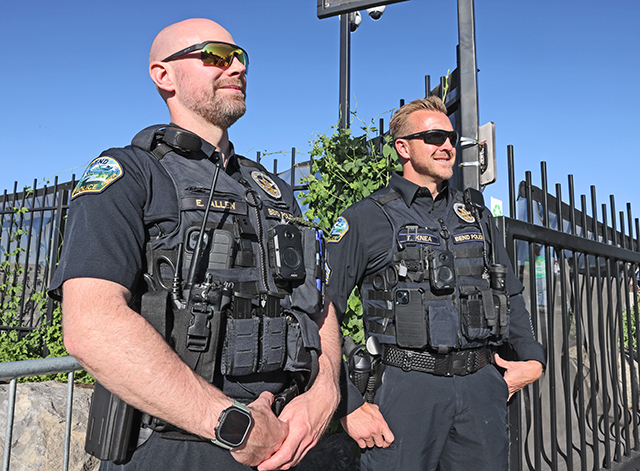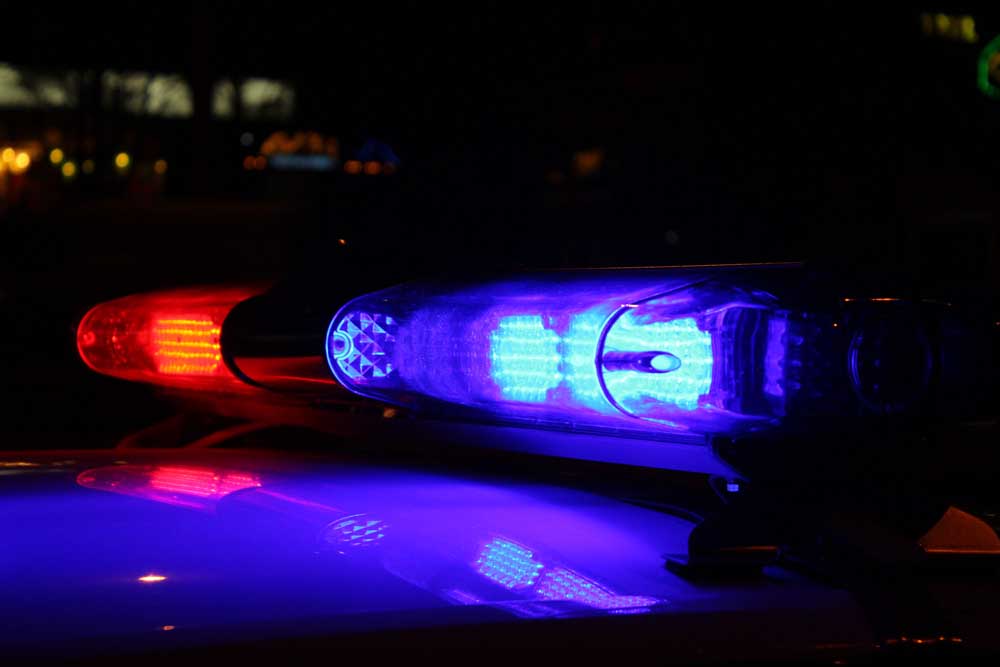Hands off Bend noise law for now
Published 5:00 am Thursday, October 18, 2012
Bend city councilors said Wednesday night they will leave the new noise ordinance alone for now, despite concerns from musicians and concert venue operators that the law is hurting business.
Two musicians and Wesley Ladd, one of the owners of The Horned Hand, presented a list of suggested changes to the City Council on Wednesday night. They asked the city to require decibel readings with every noise complaint, to take the readings from the location of the complainant and to standardize the warning and citation process.
As the ordinance is currently written, “it just leaves a lot of officer discretion,” Ladd said.
In the past, police officers who responded to noise complaints simply asked The Horned Hand to turn down the music and did not issue citations, Ladd said. He has said police officers issued The Horned Hand a citation for violating the noise ordinance Aug. 29.
“I personally know I’m not doing anything wrong and I have to feed my kid,” Ladd said.
In response, city councilors and Chief of Police Jeff Sale said noise complaints are actually lower since the ordinance took effect over the summer and they want to wait longer to determine whether the new law has problems. Since police began enforcing the new ordinance, noise complaints dropped, Sale said, to 318 complaints between Aug. 1 and Sept. 30, from 389 complaints during the same period in 2011.
City Councilor Mark Capell said officials must be careful if they make any changes to the law in order to balance the interests of musicians and venue operators with the interests of people who originally complained about noise.
“Based on the lack of increase in citations, the claim that we’re shutting down arts in Bend seems a little ludicrous,” he said.
The council passed the ordinance in May after residents complained about loud music at the Century Center and a concert at Troy Field downtown during the Bend Summer Festival. The ordinance limits noise between 10 p.m. and 7 a.m.
Under the law, fines escalate as violators rack up more citations. The maximum penalty for the first violation in a one-year period is $750. The second violation within a year costs up to $1,500, the third up to $5,000 and the fourth and any subsequent violations cost up to $10,000. After police issue a citation, the case goes to Municipal Court. If the court determines a violation occurred, it must impose at least 50 percent of the maximum penalty. Each day on which a violation continues is a separate violation.
So far, venue operators have applied for only two event permits, said City Recorder Robin Christie. Although people typically must apply for a permit 45 days before an event or series of events, the ordinance allows the city manager to waive the time line and issue permits more quickly, said Bend Business Advocate Carolyn Eagan.
Sale said officers have been instructed to use the decibel meters whenever possible, but the meters might be unavailable at times. Also, it might be inappropriate to require meters in some instances, such as a complaint by an apartment resident about noise in an adjoining apartment, Sale said.
“I’d certainly hate to lock it into, ‘You must do one thing every time’ because each and every one of these is unique,” Sale said.
Police practice has always been to talk to the person generating the noise before issuing a warning or complaint, Sale said. The Police Department obtained decibel meters a month ago and officers have been instructed that “we would like you to go to the complainant’s property and get a reading,” Sale said.
He said he would be happy to meet with a group of venue operators and musicians to discuss how police are enforcing the ordinance.
“We’ve only been enforcing it about a month-and-a-half,” Sale said. “… Personally, I think we need to give it a little more time to see how it plays out.
Musician Jason Schweitzer, of the band The Rum and The Sea, said the council needs to consider making changes to the ordinance now, not in a few months.
“The one guy who got a ticket got a ticket so far outside the bounds of the ordinance as it’s written that all the other venues are scared to death,” Schweitzer said.
City Manager Eric King said he appreciated the feedback from musicians and venue operators, but “I don’t see this getting to the point of code changes.”
Mayor Pro Tem Jodie Barram said she wants to schedule another work session on the issue in January. By that time, the one noise citation case will have worked its way through Municipal Court and police can also report back on whether false noise complaints are a problem, Barram said. Eager agreed with Barram’s suggestion.
Musician and radio DJ David Miller said it does not seem fair that Les Schwab Amphitheater received an exemption from many rules in the noise ordinance. Mayor Jeff Eager said Les Schwab Amphitheater received an exemption because of the large events it hosts, and other concert venues will have to apply for permits if they want to exceed decibel levels and time limits specified by the noise ordinance.
What the Bend noise ordinance says
The law sets different decibel limits for residential, commercial and industrial areas during the night and the day, but it does not require police to measure sound in order to enforce it. It prohibits the use of “a mechanical or electrical speaker or amplifier” that is “plainly audible” at the property line of any home or other noise-sensitive building between 10 p.m. and 7 a.m. Other types of noise-sensitive facilities include hotels, hospitals and nursing homes. Organizers of concerts and other events may apply for permits to exceed the noise limit, but they must submit the applications 45 days in advance. In June, the City Council approved an exception to decibel limits between 7 a.m. and 10 p.m. for outdoor venues with a capacity for more than 5,000 spectators, a category that includes only Les Schwab Amphitheater.
Although most people who raised concerns about the ordinance have focused on impacts to concerts, the law also regulates other sounds such as construction noise and the excessive use of car horns.
The law sets different decibel limits for residential, commercial and industrial areas during the night and the day, but it does not require police to measure sound in order to enforce it.
It prohibits the use of “a mechanical or electrical speaker or amplifier” that is “plainly audible” at the property line of any home or other noise-sensitive building between 10 p.m. and 7 a.m.
Other types of noise-sensitive facilities include hotels, hospitals and nursing homes.
Organizers of concerts and other events may apply for permits to exceed the noise limit, but they must submit the applications 45 days in advance.
In June, the City Council approved an exception to decibel limits between 7 a.m. and 10 p.m. for outdoor venues with a capacity for more than 5,000 spectators, a category that includes only Les Schwab Amphitheater.
Although most people who raised concerns about the ordinance have focused on impacts to concerts, the law also regulates other sounds such as construction noise and the excessive use of car horns.






